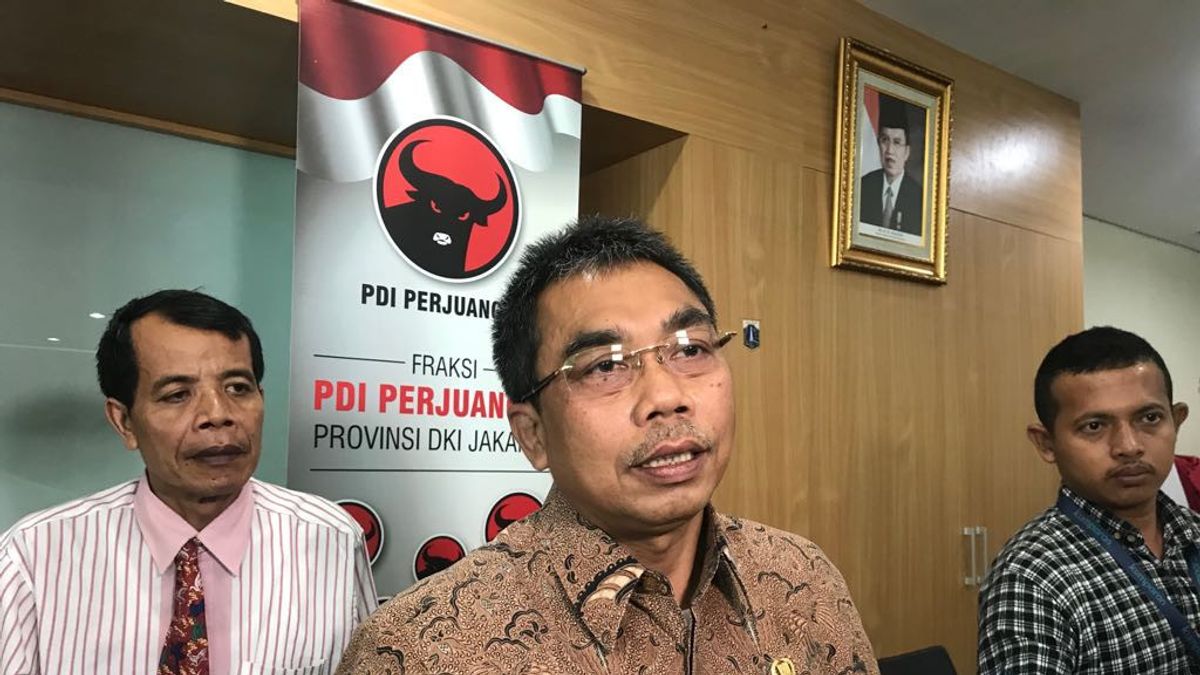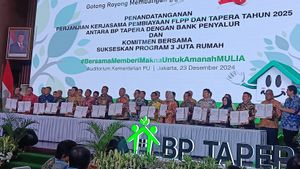JAKARTA - Chairman of the PDI-P Faction of the DKI DPRD Gembong Warsono welcomed the issuance of DKI Governor Regulation Number 41 of 2020 concerning the application of sanctions for violators of Large-Scale Social Restrictions (PSBB).
He argues, enforcement of sanctions is necessary so that citizens raise collective awareness to prevent the spread of COVID-19 so that it does not spread.
"I actually welcome it positively and the Provincial Government carries out (PSBB sanctions). This Pergub has an urgency so that (the number of COVID-19 cases) will immediately decrease. If it has decreased, then DKI Jakarta residents can do their usual activities," said Gembong to reporters, Tuesday, May 12th.
According to Gembong, currently the awareness of citizens to break the chain of transmission of COVID-19 is still not being implemented. Because, there is still leniency in legal action from the DKI Provincial Government.
For example, the crowd that occurred during the closing of McDonald's Sarinah some time ago. When. Many residents gathered, the authorities only reprimanded them and dispersed them without taking any sanctions.
"Now, maybe they want to face (PSBB) stage three, so we have issued the signs (sanctions). But, for us, the most important thing is that the provincial government must be strict, there is collective awareness of the community, and consistent rules," he explained.
Application of sanctionsDKI Jakarta Governor Anies Baswedan issued Pergub 41/2020 with the aim of providing legal certainty for the imposition of sanctions in the implementation of the PSBB, as well as optimizing the implementation of the PSBB in suppressing the spread of COVID-19.
In addition, Pergub 41/2020, this regulation also aims to increase public compliance with physical distancing, social distancing, and the implementation of protocols to prevent the spread of COVID-19.
Sanctions are applied to several types of PSBB violators. Among them are residents who do not wear masks when leaving their homes and driving, gathering more than five people in public places, holding social and cultural activities, and vehicle drivers violating health protocols.
Then, sanctions are also applied to people and transportation owners who violate passenger restrictions and operating hours during the PSBB, procure religious activities at places of worship, restaurants that do not apply health protocols, and organize learning activities at schools.
The types of sanctions that will be applied will vary. The most frequent sanctions imposed on citizens are social work by cleaning public facilities or paying administrative fines. In addition, there are also sanctions in the form of a written warning.
The English, Chinese, Japanese, Arabic, and French versions are automatically generated by the AI. So there may still be inaccuracies in translating, please always see Indonesian as our main language. (system supported by DigitalSiber.id)













